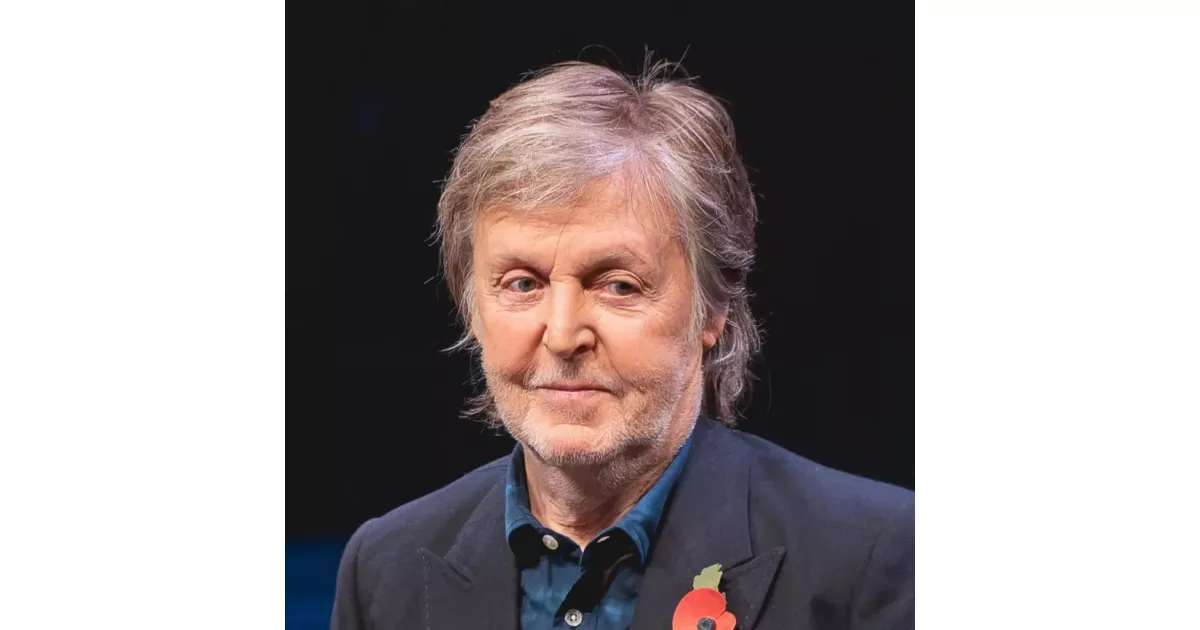From career breakthroughs to professional milestones, explore how Paul McCartney made an impact.
Sir Paul McCartney is an English singer, songwriter, and musician, most notably known for his role in The Beatles. Playing bass guitar and piano, he shared primary songwriting and lead vocal duties with John Lennon. McCartney is celebrated as one of history's most successful composers and performers, marked by his melodic bass lines, wide vocal range, and genre-spanning musical exploration from pop and classical to electronica. His songwriting partnership with Lennon is recognized as the most successful in music history.
July 1957: Meets John Lennon
On July 6, 1957, at the age of fifteen, Paul McCartney met John Lennon and his band, the Quarrymen, at the St Peter's Church Hall fête in Woolton, leading to his invitation to join the band as a rhythm guitarist.
1957: Joins the Quarrymen
In 1957, Paul McCartney began his musical career by joining John Lennon's skiffle group, the Quarrymen.
May 1960: Band Name Changes
By May 1960, the band had tried several names, including Johnny and the Moondogs, Beatals and the Silver Beetles.
August 1960: The Beatles Name Adoption
In August 1960, the band adopted the name the Beatles and recruited drummer Pete Best before a residency in Hamburg.
1960: The Beatles Form
In 1960, the Quarrymen evolved into the Beatles, marking a significant moment in music history.
1961: McCartney Becomes Bass Player
In 1961, after Stuart Sutcliffe left the band, Paul McCartney became the Beatles' bass player.
January 1962: Brian Epstein Becomes Manager
In January 1962, Brian Epstein became the Beatles' manager, a pivotal moment in their development and success.
June 1962: Signed First Recording Contract with Parlophone
In June 1962, Paul McCartney, as a member of the Beatles, signed his first recording contract with Parlophone Records, an EMI subsidiary.
1963: Northern Songs Established
In 1963, Dick James established Northern Songs to publish the songs of Lennon–McCartney.
1963: Popularity in the UK
In 1963, The Beatles became popular in the UK.
1964: Bought Epiphone Casino Guitar
In 1964, Paul McCartney bought an Epiphone Casino guitar, because its hollow body would produce more feedback.
1964: Popularity in the US
In 1964, The Beatles became popular in the US.
August 1965: Release of "Yesterday"
In August 1965, The Beatles released "Yesterday", a McCartney composition featuring a string quartet, marking their first recorded use of classical music elements and becoming one of the most covered songs in popular music history.
1965: Favored Rickenbacker 4001S for Recordings
From 1965, Paul McCartney favored his Rickenbacker 4001S for recording, though he primarily used a Höfner 500/1 bass during his early years with The Beatles.
1965: Northern Songs Public Stock Offering
In 1965, Northern Songs had a public stock offering, after which Paul McCartney initially owned 20% of Northern Songs, which became 15%.
June 1966: Promotional Films Aired
In June 1966, promotional films for "Paperback Writer" and its B-side, "Rain", aired on The Ed Sullivan Show and Top of the Pops.
November 1966: Experimental Recording Sessions Begin
In November 1966, The Beatles began adopting an experimental attitude during recording sessions for the album.
1966: First Independent Musical Project
In 1966, Paul McCartney completed his first musical project independent of The Beatles: a film score for the UK production "The Family Way".
February 1967: Release of Double A-Side Single
In February 1967, The Beatles released the double A-side single "Strawberry Fields Forever"/"Penny Lane".
1967: Started Using Fender Bassman for Amplification
By 1967, while typically using Vox amplifiers, Paul McCartney had also begun using a Fender Bassman for amplification.
1967: Beatles Re-signed with EMI
In 1967, The Beatles re-signed with EMI for another nine years.
1967: Sgt. Pepper's Lonely Hearts Club Band Album
Starting with the album "Sgt. Pepper's Lonely Hearts Club Band" in 1967, McCartney began to take on a leadership role within the Beatles, driving the creative direction of their music and film projects.
1968: Argument during the recording session for The Beatles
During a recording session for The Beatles in 1968, Paul McCartney's critique of Ringo Starr's drum part for "Back in the U.S.S.R." led to an argument that resulted in Starr temporarily leaving the band.
1968: Played Drums on "And the Sun Will Shine"
In 1968, Paul McCartney played the drums on Paul Jones' rendition of "And the Sun Will Shine".
1968: "Hey Jude" tops UK and US charts
In 1968, The Beatles composition "Hey Jude", co-written by Paul McCartney, achieved the highest sales in the UK that year and topped the US charts for nine weeks. It achieved sales of over five million copies soon after its release.
1968: Apple Records Formed
In 1968, after forming their own record label, Apple Records, the Beatles' recordings would be released through Apple although the masters were still owned by EMI.
September 1969: John Lennon Privately Leaves The Beatles
In September 1969, John Lennon privately left the Beatles but agreed to keep it secret to avoid jeopardizing ongoing business negotiations.
1969: Sale of Controlling Interest in Northern Songs
In 1969, Dick James sold a controlling interest in Northern Songs to Lew Grade's Associated Television (ATV) after which Paul McCartney and John Lennon sold their remaining shares.
1969: Played Drums on Steve Miller Band Tracks
In 1969, Paul McCartney played drums on the Steve Miller Band's tracks "Celebration Song" and "My Dark Hour".
April 1970: McCartney Announces Departure from the Beatles
On April 10, 1970, amidst business disagreements with his bandmates, largely concerning Allen Klein's management, Paul McCartney announced his departure from the Beatles.
December 1970: McCartney Files Suit for Beatles' Dissolution
On December 31, 1970, McCartney filed a lawsuit for the formal dissolution of The Beatles, marking a significant step in the band's separation.
1970: McCartney Releases His First Solo Album
In 1970, Paul McCartney released his first solo album, "McCartney", which reached number one in the US charts. This marked the beginning of his post-Beatles musical career.
1970: Solo Debut and Formation of Wings
In 1970, after the Beatles disbanded, Paul McCartney launched his solo career with the album "McCartney" and formed the band Wings with his wife Linda and Denny Laine.
March 1971: Court Appoints Receiver for Apple Corps
In March 1971, the court appointed a receiver to oversee the finances of the Beatles' company, Apple Corps, signaling further complications in the band's affairs.
1971: Bought Buddy Holly's Publishing Rights
In 1971, Paul McCartney bought the publishing rights to Buddy Holly's music catalog.
1971: Formation of Wings
In 1971, following the Beatles' break-up, Paul McCartney and his wife Linda formed the band Wings. Despite facing criticism regarding Linda's musical abilities, Paul defended her contributions, noting her skill with the Minimoog synthesizer.
1972: Re-signed with ATV
In 1972, Paul McCartney re-signed with ATV for seven years in a joint publishing agreement between ATV and McCartney Music.
1972: Wings' First Concert Tour Begins
In 1972, Wings began their first concert tour, debuting at the University of Nottingham in front of an audience of 700. They toured UK universities, staying in modest accommodations and avoiding Beatles songs.
March 1973: Wings Achieves First US Number One Single
In March 1973, Wings achieved their first US number-one single, "My Love", which was included on their second LP, Red Rose Speedway, which also topped the US charts and reached the UK top five.
1973: McCartney contributes to Starr's album Ringo
In 1973, Paul McCartney contributed instrumentation and backing vocals for "Six O'Clock", a song he wrote for Ringo Starr's album Ringo. McCartney also played a kazoo solo on "You're Sixteen" from the same album.
1973: Voted Best Rock Bassist by Creem
In 1973, Paul McCartney was voted the best rock bassist in Creem's Reader Poll Results.
1973: Wings Releases Band on the Run
In 1973, after McCullough and Seiwell's departure, Wings recorded "Band on the Run". The album became a US and UK number one and remained on the UK charts for 124 weeks.
1974: Voted Best Rock Bassist by Creem
In 1974, Paul McCartney was voted the best rock bassist in Creem's Reader Poll Results for the second consecutive year.
1974: Wings Achieves Second US Number-One Single
In 1974, Wings achieved a second US number-one single with the title track from their album "Band on the Run". Also in 1974, McCartney hired guitarist Jimmy McCulloch and drummer Geoff Britton.
January 1975: English Court Dissolves Beatles' Partnership
On January 9, 1975, an English court legally dissolved the Beatles' partnership, officially ending the band's formal association.
1975: Voted Third Best Rock Bassist by Creem
In 1975, Paul McCartney was voted the third best rock bassist in Creem's Reader Poll Results.
1975: Wings Release Venus and Mars and Begin World Tour
In 1975, Wings released the chart-topping album "Venus and Mars" and began the Wings Over the World Tour, which lasted fourteen months with stops in the UK, Australia, Europe, and the US.
April 1976: McCartney and Lennon Consider SNL Reunion Offer
On 24 April 1976, Paul McCartney and John Lennon considered a $3,000 offer to reunite the Beatles on Saturday Night Live while watching the show at Lennon's home in the Dakota. Although tempted, they decided it was too late to go to the studio, making it their last time together.
1976: End of Beatles' Recording Contract
Following the break-up of the Beatles, Paul McCartney's music continued to be released by Apple Records under the Beatles' 1967 recording contract with EMI which ran until 1976.
1976: Wings Release Wings at the Speed of Sound
In 1976, Wings released the chart-topping album "Wings at the Speed of Sound", continuing their run of successful releases.
1976: Inaugurated Buddy Holly Week
In 1976, on what would have been Buddy Holly's fortieth birthday, Paul McCartney started the annual "Buddy Holly Week" in England to celebrate Holly's legacy.
1977: Voted Third Best Rock Bassist by Creem
In 1977, Paul McCartney was voted the third best rock bassist in Creem's Reader Poll Results.
1978: McCartney Acquired Beatles' Songs Publishing Rights
In 1978, Paul McCartney acquired the publishing rights to two of The Beatles' earliest songs, "Love Me Do" and "P.S. I Love You", from Ardmore & Beechwood.
1978: Wings Release London Town
In 1978, Wings released "London Town", which spawned the US number-one single "With a Little Luck" and achieved top-five status in both the US and the UK.
1979: Signed with Columbia Records
In 1979, Paul McCartney signed with Columbia Records in the US and Canada, reportedly receiving the industry's most lucrative recording contract to date, while remaining with EMI for distribution throughout the rest of the world.
1979: Wings Last Number One Hit
In 1979, Wings last number one hit was the live version of "Coming Up", which was recorded in Glasgow, Scotland.
1979: Wings Release Back to the Egg
In 1979, Wings released "Back to the Egg", which featured a rock supergroup called "Rockestra" and included 20 shows in the UK, debuting Beatles songs like "Got to Get You into My Life", "The Fool on the Hill" and "Let It Be".
1979: MPL Communications Published McCartney's Songs
Since 1979, MPL Communications has published Paul McCartney's songs.
1980: McCartney Releases McCartney II
In 1980, Paul McCartney released his second solo LP, "McCartney II", which he self-produced. The album peaked at number one in the UK and number three in the US.
1980: Resumes Solo Career
In 1980, Paul McCartney resumed his solo career after the dissolution of Wings.
April 1981: Wings Discontinues After Laine Quits
In April 1981, Paul McCartney discontinued Wings after Denny Laine quit due to disagreements over royalties and salaries, marking the end of the band.
1981: Failed Purchase of Northern Songs Catalogue
In 1981, Paul McCartney and Yoko Ono attempted to purchase the Northern Songs catalogue, but their offer was declined.
1981: McCartney sings backup on Harrison's tribute to Lennon
In 1981, Paul McCartney sang backup on George Harrison's tribute to John Lennon, "All Those Years Ago", which also featured Ringo Starr on drums.
1981: Wrote and Produced "Rupert and the Frog Song"
In 1981, Paul McCartney wrote, produced, and contributed character voices for a short animated film directed by Geoff Dunbar called Rupert and the Frog Song. His song "We All Stand Together" from the film's soundtrack reached No. 3 in the UK Singles Chart.
1982: Collaborations with Stevie Wonder and Michael Jackson
In 1982, McCartney collaborated with Stevie Wonder on "Ebony and Ivory" and with Michael Jackson on "The Girl Is Mine", marking significant collaborations in his solo career.
1982: McCartney releases 'Here Today'
In 1982, Paul McCartney released "Here Today", a song described as a tribute to his friendship with John Lennon.
1983: Took Up Painting
In 1983, Paul McCartney became interested in painting after watching artist Willem de Kooning work in his Long Island studio and started painting himself.
1984: McCartney Stars in Give My Regards to Broad Street
In 1984, McCartney starred in "Give My Regards to Broad Street", a film he also wrote and produced. Although the film received poor reviews, the soundtrack reached number one in the UK.
1984: Starr appears in McCartney's film Give My Regards to Broad Street
In 1984, Ringo Starr appeared as a fictional version of himself in Paul McCartney's film Give My Regards to Broad Street and played drums on most tracks of the soundtrack album.
1984: "Mull of Kintyre" UK Sales Record Broken
Until the 1984 release of "Do They Know It's Christmas?", the Wings song "Mull of Kintyre" held the UK sales record with 2.5 million copies sold.
1985: McCartney Participates in Live Aid
In 1985, McCartney participated in Live Aid and performed "Let it Be", with technical difficulties initially affecting the audio quality.
1985: Michael Jackson Acquires ATV Music
In 1985, Michael Jackson purchased ATV Music, the parent company of Northern Songs, leading to criticism from McCartney.
1985: Produced "The Real Buddy Holly Story"
In 1985, Paul McCartney produced and hosted The Real Buddy Holly Story, a documentary featuring interviews with Keith Richards, Phil and Don Everly, the Holly family, and others.
1985: Returned to Capitol in the US
In 1985, Paul McCartney returned to Capitol Records in the US, remaining with EMI until 2006.
1986: McCartney Collaborates with Eric Stewart on Press to Play
In 1986, Paul McCartney collaborated with Eric Stewart on "Press to Play", with Stewart co-writing more than half of the album's songs.
1988: Release of Снова в СССР
In 1988, Paul McCartney released Снова в СССР, which was initially available only in the Soviet Union and contained eighteen cover songs recorded over two days.
September 1989: Launch of the Paul McCartney World Tour
In September 1989, Paul McCartney launched the Paul McCartney World Tour, his first tour in over a decade. That same year, he released Flowers in the Dirt; a collaborative effort with Elvis Costello.
1989: Solo Touring
In 1989, Paul McCartney began touring as a solo artist.
1989: Recording of "Ferry Cross the Mersey"
In 1989, Paul McCartney participated in the charity recording of "Ferry Cross the Mersey".
1989: UK's Wealthiest Musician
Since the Rich List began in 1989, Paul McCartney has been the UK's wealthiest musician.
1989: Lawsuits Against EMI and Others Persist
Until 1989, sporadic lawsuits against EMI, Allen Klein, and the former Beatles members persisted, extending the legal entanglements following the band's dissolution.
April 1990: Largest Paying Stadium Audience
On April 21, 1990, Paul McCartney performed for the largest paying stadium audience in history, with 184,000 people attending his concert at Maracanã Stadium in Rio de Janeiro, Brazil.
1990: Changed back to the Höfner Bass
Around 1990, Paul McCartney switched back to using the Höfner bass because it inspired him to play more sensitively, something he considers fundamental to his playing style.
1991: Liverpool Oratorio Premiere and MTV Unplugged
In 1991, Paul McCartney premiered his orchestral piece "Liverpool Oratorio" and performed on MTV Unplugged, later releasing a live album of the performance titled "Unplugged (The Official Bootleg)".
1992: Won BAFTA Award with Geoff Dunbar
In 1992, Paul McCartney worked with Geoff Dunbar on an animated film about the work of French artist Honoré Daumier, which won them a BAFTA award.
1993: Collaboration with Youth and New World Tour
In 1993, McCartney collaborated with Youth of Killing Joke as "the Fireman", releasing the album "Strawberries Oceans Ships Forest", and released the rock album "Off the Ground", followed by the New World Tour and the "Paul Is Live" album.
1995: Northern Songs Dissolved and Merged with Sony/ATV
In 1995, Northern Songs was formally dissolved and absorbed into the Sony/ATV catalogue after Jackson merged his catalogue with Sony. McCartney receives royalties from commercial proceeds.
1995: Guest Appearance on The Simpsons and Directed Documentary
In 1995, Paul McCartney made a guest appearance on The Simpsons episode "Lisa the Vegetarian" and directed a short documentary about the Grateful Dead.
1995: Narrated 'Devour the Earth' Documentary
In 1995, Paul McCartney narrated the documentary 'Devour the Earth', written by Tony Wardle.
1997: Official Biography Released
In 1997, Barry Miles wrote Paul McCartney's official biography, Many Years from Now.
1997: Support for Decriminalization of Cannabis
In 1997, Paul McCartney spoke out in support of decriminalization of cannabis, arguing that making people criminals for smoking pot was wrong.
1997: Starr plays on McCartney's album Flaming Pie
In 1997, Ringo Starr played drums and sang backing vocals on "Beautiful Night" from Paul McCartney's album Flaming Pie.
1998: McCartney collaborates on Starr's Vertical Man
In 1998, Paul McCartney collaborated on Ringo Starr's Vertical Man, providing backing vocals on three songs and instrumentation on one.
1999: First Art Exhibition in Siegen, Germany
In 1999, Paul McCartney first exhibited his paintings in Siegen, Germany. The 70-painting show featured portraits of John Lennon, Andy Warhol, and David Bowie.
1999: Investment in Linda McCartney Foods
In 1999, Paul McCartney spent £3,000,000 to ensure Linda McCartney Foods remained free of genetically engineered ingredients.
September 2000: First UK Exhibition of Paintings
In September 2000, Paul McCartney's first UK exhibition of paintings opened, featuring 500 canvases at the Arnolfini Gallery in Bristol, England.
October 2000: Art Debuted in Liverpool
In October 2000, Paul McCartney's art debuted in his hometown of Liverpool at the Walker Art Gallery.
2001: Published "Blackbird Singing"
In 2001, Paul McCartney published "Blackbird Singing", a volume of poems and lyrics to his songs.
2003: Meeting with Vladimir Putin on Landmines
In 2003, Paul McCartney and Heather Mills met with Vladimir Putin at the Kremlin, urging Russia to join the anti-landmine campaign.
2003: Highest Income Within Media Professions in the UK
In 2003, Paul McCartney earned £40 million, making him the highest income earner that year within media professions in the UK.
2004: Worked on "Tropic Island Hum" Animated Short
In 2004, Paul McCartney and Geoff Dunbar worked together on the animated short film Tropic Island Hum. The accompanying single, "Tropic Island Hum"/"We All Stand Together", reached number 21 in the UK.
2004: Donation to US Campaign for Burma
In 2004, Paul McCartney donated a song to an album to aid the "US Campaign for Burma", in support of Aung San Suu Kyi.
July 2005: Release of "Sgt. Pepper's Lonely Hearts Club Band" performance at Live 8
In July 2005, Paul McCartney's performance of "Sgt. Pepper's Lonely Hearts Club Band" with U2 at Live 8 became the fastest-released single in history, reaching number one on the UK Official Download Chart within forty-five minutes of its recording.
2005: Income Rose
By 2005, Paul McCartney's income rose to £48.5 million.
2005: Published "High in the Clouds"
In 2005, Paul McCartney's first children's book, "High in the Clouds: An Urban Furry Tail", a collaboration with writer Philip Ardagh and animator Geoff Dunbar, was published by Faber & Faber.
2006: Campaign Against Seal Hunting
In 2006, Paul and Heather McCartney traveled to Prince Edward Island to raise international awareness of seal hunting and debated with Newfoundland's Premier Danny Williams on Larry King Live.
2006: Ended Contract with EMI
Paul McCartney's contract with EMI ended in 2006.
2007: Signed with Hear Music
In 2007, Paul McCartney signed with Hear Music, becoming the label's first artist.
2008: Donation to Aid Still Required
In 2008, Paul McCartney donated a song to Aid Still Required's CD, which was organized as an effort to raise funds to assist with the recovery from the devastation caused in Southeast Asia by the 2004 tsunami.
2009: McCartney and Starr perform for David Lynch Foundation
In 2009, Paul McCartney and Ringo Starr performed "With a Little Help from My Friends" at a benefit concert for the David Lynch Foundation.
2009: Narrated "Glass Walls" Video for PETA
In 2009, Paul McCartney narrated a video for PETA titled "Glass Walls", which was critical of slaughterhouses and the meat industry.
2009: Letter to the Dalai Lama
In 2009, Paul McCartney wrote to the 14th Dalai Lama questioning his meat consumption.
July 2010: McCartney joins Starr's birthday concert
On 7 July 2010, Paul McCartney made a surprise appearance at Ringo Starr's seventieth birthday concert at Radio City Music Hall in New York, performing the Beatles' song "Birthday" with Starr's band.
2010: McCartney collaborates on Starr's album Y Not
In 2010, Paul McCartney collaborated on Ringo Starr's album Y Not, playing bass on "Peace Dream" and singing a duet with Starr on "Walk with You".
2011: Voted Third Best Bassist of All Time by Rolling Stone
In 2011, a Rolling Stone readers' poll voted Paul McCartney the third best bassist of all time.
2012: Joined Artists Against Fracking
In 2012, Paul McCartney joined the anti-fracking campaign Artists Against Fracking.
2012: "On the Run Tour" Grossed £37 Million
Paul McCartney's 18-date "On the Run Tour" grossed £37 million in 2012.
January 2014: McCartney and Starr perform at the Grammy Awards
On 26 January 2014, Paul McCartney and Ringo Starr performed "Queenie Eye" from McCartney's album New at the 56th Annual Grammy Awards.
2014: Most Recent UK Number One
As of 2014, McCartney's most recent UK number one was the title track of his LP "Pipes of Peace", showcasing his enduring success.
April 2015: McCartney inducts Starr into the Rock and Roll Hall of Fame
In April 2015, Paul McCartney inducted Ringo Starr into the Rock and Roll Hall of Fame.
2015: Estimated Fortune in 2015
In 2015, Paul McCartney had an estimated fortune of £730 million.
2015: Opposition to Fox Hunting Reintroduction
In 2015, Paul McCartney opposed the reintroduction of fox hunting in Britain, following David Cameron's decision to allow a free vote on the law.
2017: McCartney plays on Starr's album Give More Love
In 2017, Paul McCartney played bass on Ringo Starr's album Give More Love.
2017: Played Drums on "Sunday Rain" by Foo Fighters
In 2017, Paul McCartney played drums on the song "Sunday Rain" from the Foo Fighters' album Concrete and Gold.
December 2018: McCartney, Starr, and Wood perform together
On 16 December 2018, Ringo Starr and Ronnie Wood joined Paul McCartney onstage to perform "Get Back" at his concert at London's O2 Arena.
2018: Returned to Capitol for Egypt Station
In 2018, Paul McCartney returned to Capitol Records for his album Egypt Station.
2018: Wrote the Children's Book "Hey Grandude!"
In 2018, Paul McCartney wrote the children's book Hey Grandude! together with illustrator Kathryn Durst.
July 2019: Starr joins McCartney's Freshen Up tour
In July 2019, Ringo Starr made an appearance on the final day of Paul McCartney's Freshen Up tour, performing "Sgt. Pepper's Lonely Hearts Club Band (Reprise)" and "Helter Skelter".
September 2019: "Hey Grandude!" Published
In September 2019, the children's book Hey Grandude!, written by Paul McCartney and illustrated by Kathryn Durst, was published by Random House Books.
December 2020: McCartney achieves top chart positions over six decades
In December 2020, the release of Paul McCartney's album McCartney III and its subsequent charting at number 2 on the US Billboard 200 earned McCartney the feat of being the first artist to have a new album in the top two chart positions in each of the last six decades.
2020: Calls for Ban on Chinese Wet Markets
During the COVID-19 pandemic, in 2020, Paul McCartney called for Chinese wet markets to be banned, citing health and animal cruelty concerns. He also commented on ecocide.
2020: Ranked Ninth Greatest Bassist of All Time by Rolling Stone
In 2020, Rolling Stone magazine ranked Paul McCartney the ninth greatest bassist of all time. Also, in 2020, Bass Player magazine ranked him the third best bass player of all time.
September 2021: Release of "Grandude's Green Submarine"
In September 2021, Paul McCartney released a follow-up children's book to Hey Grandude!, titled Grandude's Green Submarine.
2021: Voted Fifth Greatest Bassist of All Time by MusicRadar
In 2021, Paul McCartney was voted the fifth greatest bassist of all time in a MusicRadar readers' poll.
December 2024: McCartney, Starr, and Wood perform at the O2 Arena
On 19 December 2024, Ringo Starr and Ronnie Wood joined Paul McCartney at the O2 Arena in London, performing "Get Back", "Sgt. Pepper's Lonely Hearts Club Band (Reprise)", and "Helter Skelter".
2024: Sponsors Tree Register Yearbook
In 2024, McCartney sponsored the first ever Tree Register Yearbook.
Mentioned in this timeline

Vladimir Vladimirovich Putin is a Russian politician and former intelligence...
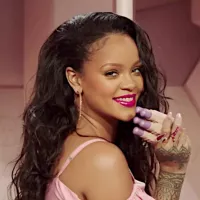
Robyn Rihanna Fenty is a highly successful Barbadian singer actress...
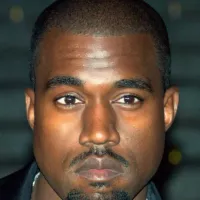
Kanye West professionally known as Ye is a highly influential...
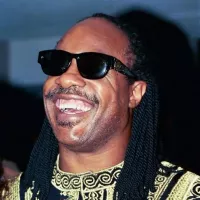
Stevie Wonder born Stevland Hardaway Morris is a highly influential...
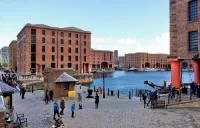
Liverpool is a port city and metropolitan borough located in...

Michael Joseph Jackson the King of Pop was a highly...
Trending
7 months ago Prague dethroned as best place to live; David Lynch exhibition opens at DOX.
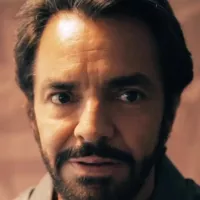
Eugenio Derbez is a highly successful Mexican actor and comedian renowned for his work in both Spanish and English language...
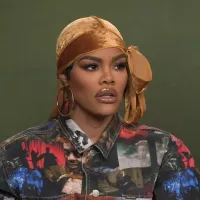
2 months ago Angela Bassett As Queen Ramonda Stuns At Vogue World 2025; Black Panther Tribute.
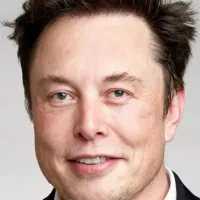
8 months ago Tesla Board Initiated CEO Search to Replace Elon Musk Amidst Leadership Concerns.
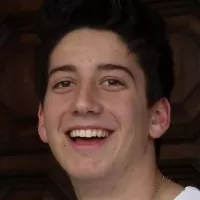
9 months ago Milo Manheim and Liz Gillies bond in Little Shop of Horrors, extend run.
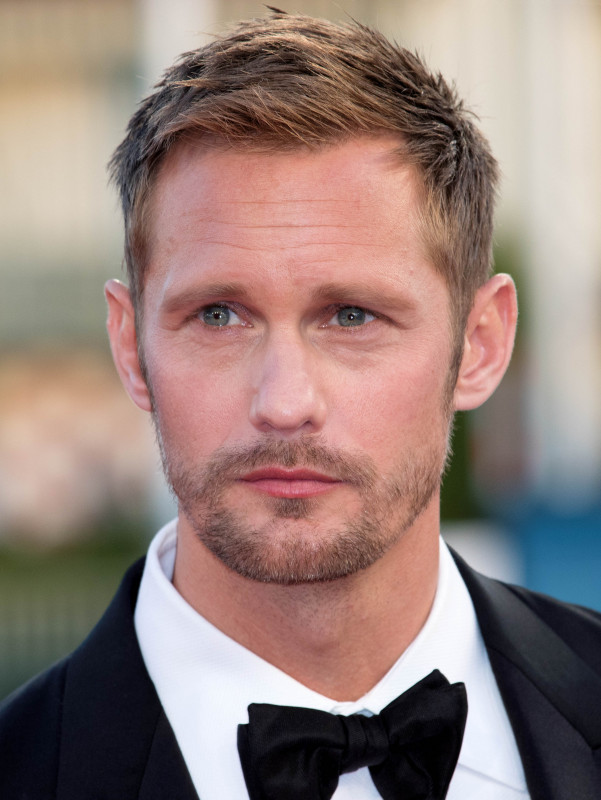
1 month ago Alexander Skarsgård reminds Miriam Margolyes of their meeting; addresses sexuality question, states 'not really' gay.
Popular

Stranger Things created by the Duffer Brothers is a popular...

XXXTentacion born Jahseh Dwayne Ricardo Onfroy was a controversial yet...
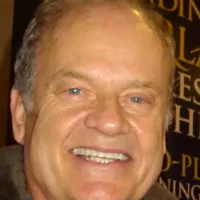
Kelsey Grammer is an accomplished American actor producer and singer...

Candace Owens is an American conservative political commentator and author...

Bernie Sanders is a prominent American politician currently serving as...

Marco Rubio is an American politician attorney and diplomat He...
